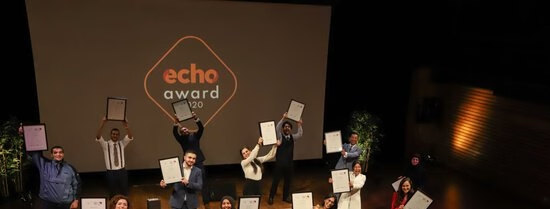- You are part of an underrepresented group, with a specific focus on Dutch students with a non-Western background, refugee or international background.
- You have excellent study results (an average of 7.5 or higher)
- You have excellent proficiency of the English language
- You are available for the ECHO Ambassadors Academy which will take place on August 24, 2024
- You are available for an interview with the ECHO Award jury
- You are available to attend the ceremony of the ECHO Award on December 12, 2024
Students who are eligible for an ECHO Award are talented students with a non-Western background who stand out because of their entrepreneurial spirit, organizational skills, active social involvement and constructive approach to challenges related to exclusion. To compete for the ECHO Award you must first meet these practical criteria:
In addition, here are the main criteria that will be considered when awarding an ECHO Award from eligible nominees.
- The student is innovative in thinking and doing: thinks outside the box, contributes to innovation in the social debate about diversity and inclusion;
- The student has organizational skills: can translate vision into practice, knows how to engage and mobilize people;
- The student has contributed to societal impact:made a difference in society and demonstrably strengthened diversity and inclusion;
- The student is acritical friend: knows how to offer constructive criticism on issues related to exclusion and is willing to contribute to constructive solutions.

In addition to the above criteria, for eligibility for the STEM Award for students at a university of applied sciences or research university:
You have a clear vision for innovation in science / technology in a changing social context.
Addition to the above criteria for the Law & Tax Award for students at a university of applied sciences or research university:
The student has a clear vision for diversity and inclusion in the broader social context surrounding legislation, policy and implementation in law, including tax law and allowances.
Furthermore, ECHO is aware of the changing social context and the challenges involved in defining the target group. Even though this definition appears to be no longer tenable, nonetheless as a driver for positive societal impact EUR still encourages students to apply.
